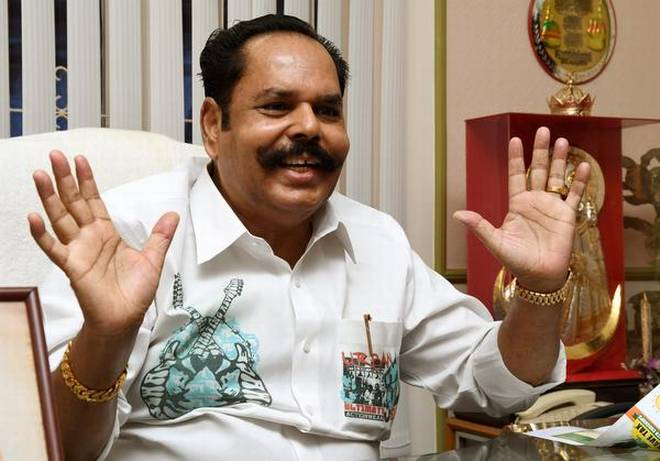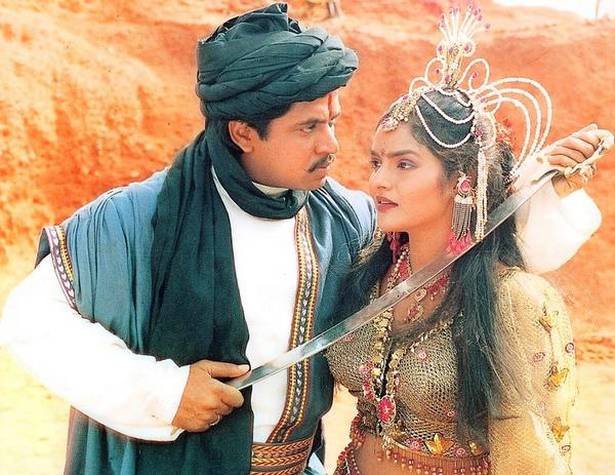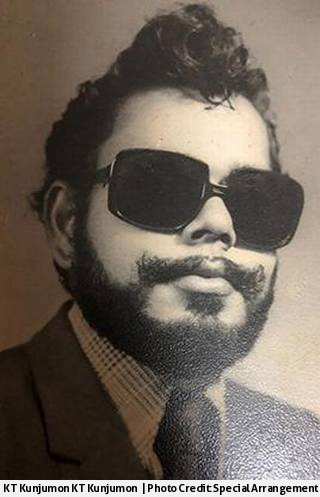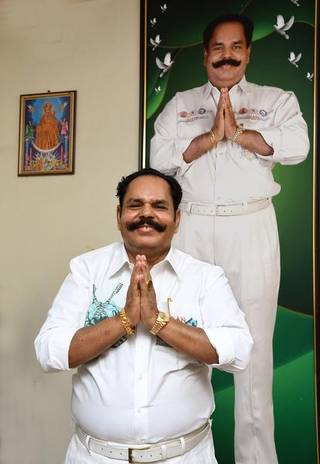
How the blockbuster became the namesake of KT Kunjumon, the only film producer in India to have fan clubs
It was the early 90s and I had just produced two superhits, Vasanthakala Paravai (1991) and Suriyan (1992), both with the same team. Things were looking up and we were set to make a third film. Sarath Kumar, who had starred in both, was going to be the hero in the third film, and it would’ve been directed by the same person (Pavithran, unwilling to use his name).
But that film never happened. That director left my company and took along with him the actors and technicians to make another film that had nothing to do with me. I was in a fix. That’s when photographer ‘Stills’ Ravi and editor VT Vijayan suggested Shankar’s name. Apparently, the boy had worked as an assistant in both these films and was being noticed for his efficiency.

A few days later, Shankar came to meet me at my office at No 1, Ashoka Avenue, Chennai. I had already heard about his script; lots of major producers and actors had heard it but the film hadn’t materialised. It was being dismissed as an ‘appala kadhai’ and a ‘brahmana padam’.
Tall and lean with a light moustache, Shankar seemed younger than I had imagined. Even before he started the narration, I asked him about his background. He said his father had passed away long ago and that he had a mother and two sisters to take care of. Oru veri irundhudhu (‘There was a fire in him’). I believe people in such situations have a burning desire to succeed.
‘Rahman’s music was considered too classy’
He then narrated the storyline and I immediately liked the thread. But I had one condition: that he would have to accept my inputs. Each time he worked on something, I would ask him to come to my office with a paper and pen so I could suggest additions. We also brought writer Balakumaran on board.
Sarath Kumar was to play the hero, but he too had left my company for other films. All the top heroes were asking for fancy salaries. Shankar then suggested Telugu actor Rajasekhar, but that too didn’t work out. That’s when Arjun’s name came up. At that time, he was considered a ‘dubbed film hero’ but we went with him anyway.

We also roped in newcomers to take care of the technical side. Even AR Rahman, who was chosen to compose the music, was considered a ‘class composer’ then — somebody whose music might not suit a big commercial film like ours. The lyrics were to be written by Vairamuthu, but I insisted on one song being written by Vaali, who I consider my guru.
That song is ‘Chikku Bukku Rayile’.
‘Let’s burn the negatives’
A tentative budget for the film
was suggested by Shankar. But based on my experience, a film’s budget would invariably end up being double of what the director promises. And of course, that was the case with Gentleman too. I never go to the sets of my films because I believe in giving complete freedom to my directors. The film was getting made, and I ensured that no expenses were spared. In fact, I insisted on making the film as grand as it could be. Not that all this was very easy. I had to pledge my house and wife’s jewels, but I believed in it.
The film was progressing briskly when news of Sri Lankan President Ranasinghe Premadasa’s assassination broke out. Reports said that it was a young boy on a cycle who was behind the suicide bombing. I thought this could be a possible climax sequence for Gentleman with a young boy killing the politician villain. I called up Shankar and asked him to rewrite the climax, keeping this incident in mind.

This really upset Arjun. He thought all the credit would go to the kid, diluting his own heroism. Shankar was stuck in the middle but I was adamant about this climax. It was my money and my risk, and I was ready to face the consequences. If Arjun wasn’t willing to shoot this sequence, I told Shankar: ‘Let’s burn the negatives’ and re-shoot the entire film with some other actor.
The threat worked.
‘My cutouts were 60 ft tall’
Gentleman was complete, but it found no takers. Distributors felt it looked like a dubbed film,
Gentleman was complete, but it found no takers. Distributors felt it looked like a dubbed film, though they appreciated its production value and music. It also didn’t help that most of the crew were newcomers. That’s when I decided to distribute the film myself, having distributed films like Nayagan earlier. I decided to go all out with the publicity; ours was one of the first films to advertise in every newspaper and magazine. Its release became an event; I put up massive 12-sheet posters of the film all over the city and 60-foot cutouts of myself outside theatres. Everyone was talking about it.
The film released on July 30, 1993. It became a sensation. For many people, it was the only film they watched that year. Soon, pirated cassettes started flooding the market, but it didn’t affect our business. People who watched the cassettes were just tempted to watch it again on the big screen.
There was a newspaper article about a person who sold ‘black’ tickets and bought an apartment using that money. I used this report as part of the promotional material to further add to the frenzy.
Seeing the film’s success, a lot of people from other states wanted to buy its rights. I quoted a price so huge that a distributor joked that even Rajinikanth films don’t get that much. Even the Hindi film star Govinda flew down to Madras, stayed at Chola Sheraton, just to approach me for Gentleman’s Hindi rights. By then, I had already given my word to Allu Aravind, so he could remake it with Chiranjeevi in the lead. Everybody wanted to be a part of Gentleman’s success.
‘I’m still a happy man’
I went on to make Kadhalan, another superhit with Shankar, but Gentleman will be special for so many of us. I have always shared my success with my team. I gifted Shankar an apartment and a Maruti 800 car, and gave all his assistants Kinetic Hondas back then.
Shankar and I took different paths after that; he went on to make Indian and I made Kadhal Desam with Kathir.
It’s been 25 years and a lot has changed since. While I’m still a happy man, a lot of the projects that I made after that didn’t go as planned. The film world too has changed. Today, producers hardly get the respect they got back then. I recently saw a producer walking out of AVM Studios when his own production controller went past him in a luxury car! Who do you think is the most important person in a film? A director might be the captain, but the ship belongs to the producer, doesn’t it?
Today, people ask me why I don’t make films like Gentleman any more. All I can say is that I am really happy that the people I introduced have become successful and I only wish them well.
God knows that I no longer have the thaguthi (standing) or the vasadhi (resources) to make a Shankar film now.
(As told to Srinivasa Ramanujam and Vishal Menon)
